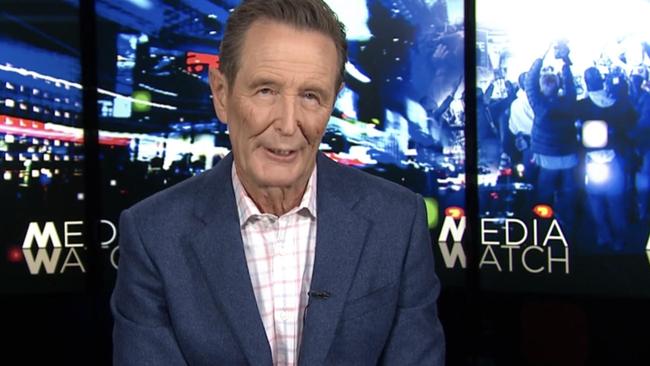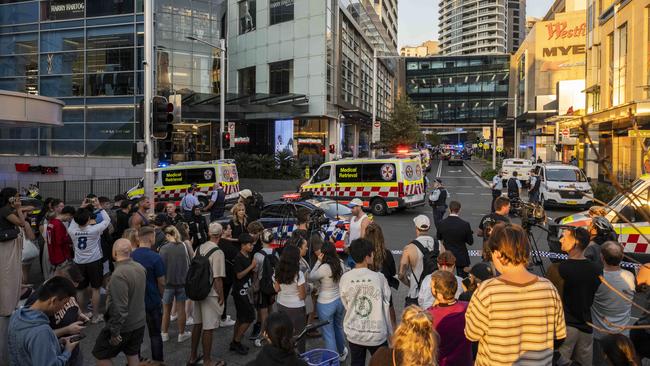‘Pathetic’: Media Watch blasts ABC’s ‘second-rate’ news coverage of Bondi Junction attacks
Paul Barry has excoriated the ABC’s coverage of the fatal knife attack at Bondi Junction, describing its breaking news broadcast as ‘second rate’.

Media Watch host Paul Barry has excoriated the ABC’s coverage of last month’s fatal knife attacks at Bondi Junction, describing its breaking news broadcast on the afternoon of April 13 as “pathetic” and “second rate”, while questioning the relevance of the media organisation’s dedicated news channel.
Barry, who has fronted the weekly ABC program for more than a decade, said on Monday night’s show that the public broadcaster’s coverage of the shocking incident in Sydney’s east was “miles off the pace”.
The Media Watch host noted that 90 minutes after Joel Cauchi’s murderous rampage began at 3.20pm, the ABC still didn’t have a reporter at the scene, whereas rival Nine had two journalists there, conducting live crosses.
The best that the ABC could muster was a ten-minute phone interview with an ABC radio producer who had been shopping at Bondi Junction — away from the action — and was shut in a storeroom as the attacks began, Barry said.
“It wasn’t until six minutes to 5pm that (the ABC) crossed to crime reporter Lia Harris who had rushed to the scene,” Barry said.
By that time, Nine and Seven had mobilised teams of reporters, and both channels had experienced anchors hosting rolling news coverage from their respective studios.

“Meanwhile, the ABC was still struggling to cope, with only one reporter at the scene.
“And Lia Harris was not only flat out trying to cover the chaos live, she was also doing a news package for the 7pm bulletin, an impossible task.
“So, in the critical hour between five and six, the ABC was twice forced to replay the phone interview with the radio producer, and, after getting a second live cross from Lia, it was forced to replay that twice as well.
“All up, these replays lasted forty minutes, or two-thirds of the ABC’s output in that crucial hour, which is, frankly, pathetic.”
Barry said because ABC TV was “caught short”, it was unable to deliver its viewers the “powerful and tragic eyewitness accounts” that were being captured by the commercial networks.
The Media Watch analysis quoted former ABC reporters’ expressing their dismay at the public broadcaster’s coverage of the biggest news story of the year, with one ex-ABC journalist calling it a “disgrace” and an “embarrassment”.

Barry said those views weren’t shared by senior managers at the ABC, who praised the coverage as “superb” in an email to staff.
Barry said the ABC’s dedicated news channel, formerly known as ABC News 24 – which was created to deliver “immediate coverage of stories as they break” – had failed to deliver on its core objective on the day of the incident, and the failure raises serious questions about the relevance of the channel.
“So why was the ABC’s TV coverage second rate? A lack of firepower, resourcing and experience are among the issues being raised internally, with some news staff furious at a lack of urgency and breaking news culture at the News Channel. And another blaming low morale and skeleton staffing at the weekend,” Barry reported.
“We wonder how the ABC can justify having a dedicated news channel if it can’t do better on breaking stories like this.
“If the ABC can’t or won’t resource its news channel properly should it close it and use the money elsewhere? It’s a choice the ABC needs to make.”
The ABC receives more than $1 billion of funding from the federal government each year.
A spokesperson for the ABC declined to comment.
More Coverage








To join the conversation, please log in. Don't have an account? Register
Join the conversation, you are commenting as Logout